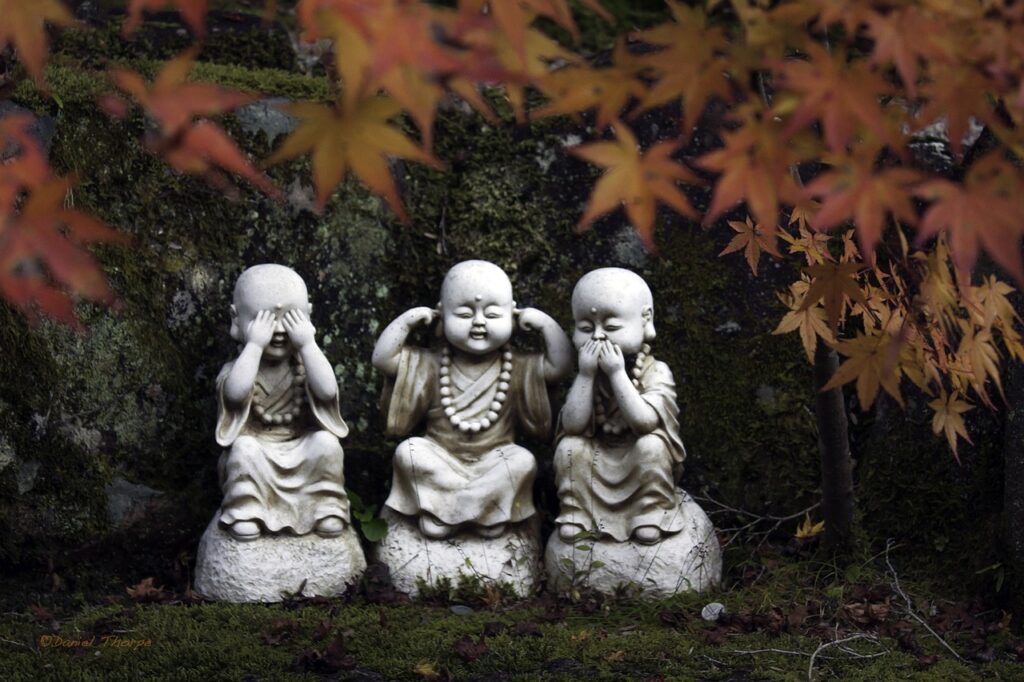Last weekend I was having a conversation with my husband (Ok it was a heated discussion) on our 4 hour drive back from a wedding (in Ohio) about standing in your truth even when it may have a detrimental effect.
How do you best share your position in the face of someone else’s controlling or condemning behaviour?
Is it worth triggering someone’s ego while standing your truth?
I was telling my husband how impressed I was after watching a clip a while back of our prime minister, Justin Trudeau, and how he handled a question posed by someone from my hometown, Oakville (no coincidences)!
She asked: “Will you stand up to Donald Trump, and condemn his hateful rhetoric? What would you say about his politics?”
What’s interesting is the assumption that in order to stand up for something you disagree with, you need to condemn. Not true.
My husband works in the corporate automotive world, and there can be a lot of egos to manage so there’s a tendency to avoid as opposed to speak up. I realize sometimes things are better left unsaid, but sometimes it is not.
Justin displayed how you can stand up to a behaviour he strongly disagrees with without condemning Donald. Instead he simply stated his own position clearly while holding an intention to maintain positive relations. It was marvellous, especially his final lines on fear, and diversity – the ignorance, and irresponsibility of it!
And so rare in a world where power tends to attract controlling, and condemning behaviour fuelled by fear. It’s so easy it seems to blast someone for a behaviour you don’t like. Harder to be in non-judgment, and compassion.
I’ve run into a few characters in the self-development world operating their businesses in a competitive, controlling manner that has also been divisive. The impact has been destructive to those around them. I’ve had to speak up on a number of occasions – sometimes it has ended some connections.
What becomes clear is how this process helps you see yourself more clearly. I know exactly what I stand for, and it gives me the courage to keep speaking up for what’s right in my own life, live true to myself, and what I value. I want others to do that more in their lives for what’s right for them.
It’s also opened the space to attract more like-minded people – when one misaligned door closes, another one opens with more aligned energy : ) It’s not simply about moving on to better, and brighter possibilities, its about stepping further into your own truth, and light.
My husband had read an article on this interview, and argued that Justin would be better not to have shared his negative opinion in case Donald wins! Why share that now when the election outcome is not known? That Canada may now suffer as a result. I could understand where he was coming from knowing what he deals with at work.
But there’s a fine line between speaking up, and remaining silent on the things that matter. From how you can be authentic, without judging (condemning someone) when you’re put in a situation that calls you forth to speak your position.
In particular, when you are in a leadership or influential position (including parents for their children, teachers for their students, friends for their friends ), it is imperative (in my opinion) that you speak up. Not only for what’s right, but for those who look to you for guidance to place their trust.
In the end, you can move forward…
In the end, you can move forward more strongly than ever because you’ll gain the trust of others by speaking up. At first, it may feel like you are alone because few are willing to speak up when there is a conflict. What I’ve learned is the more you speak up, the more you will discover others speaking up in their own life too!
It’s like you’re giving other people permission to follow what their inner voice is telling them when before it was just easier to avoid, and make peace. I was really good at not listening to my inner voice for a very long time, and it wasn’t until I started speaking up that I began to hear it louder.
My husband and I agreed to disagree. Until we got home, and I showed him the clip because his conclusion still baffled me, and perhaps the article he’d read was slanted one way? I was curious. And to be honest, disappointed. A little disappointment can go a long way!
The majority of what I see in the little I read in the media has a slant to arouse fear, point out someone’s faults, or stir up trouble, which is why I limit its energy coming into my own thinking, and prefer to hear what I choose is relevant to my life. Like this clip that popped up because I was curious what Justin had to say on this topic, and googled it.
After watching – see below, my husband says “oh, he didn’t really say anything against Donald…that was ok to say.” Hmmmm…slanted article he’d read.
It wasn’t about who was right or wrong, but do we even hold a similar vision? Does he understand why I was so inspired? Thankfully, yes, and the whole discussion ended up bringing us closer. These kinds of heated debates when we’re both willing to listen, and not attack each other despite being on opposite ends brings that gift of growing together.
To speak your difficult truth:
1) Acknowledge what you value. What is important for you to maintain?
2) Listen to someone else’s truth from curious place to make sure you understand how it could be their truth from where they are coming from even if you disagree.
3) State clearly what you stand up for, and bring in examples of where this has been the case to illustrate your consistent position.
4) Consider if your truth is something the other person would be able to receive without them becoming destructive/attacking towards you. Have the courage to share a lesser difficult truth, and notice the reaction. Your harder truth may now not have a safe place to land, so keep these to yourself. This is the place that allows you to grow forward constructively even if you can’t move forward together.
5) Remember that when you trigger anyone’s ego with your truth, there is now a possibility for growth that wasn’t there before. There’s an opportunity to face whatever reaction surfaces, to choose how you will respond, and take responsibility for what, and how you’ve shared something. How they respond will show you now which way to go.
The more valuable someone is to you, and you to them, the more likely you’ll be motivated to work through your differences where it will become a growth lesson to bring you closer. The further away you are in your respective inner growth, and value to each other – the more likely you will grow apart or it will end. Life is about change, including with people.
Either way, you will have grown immensely.




